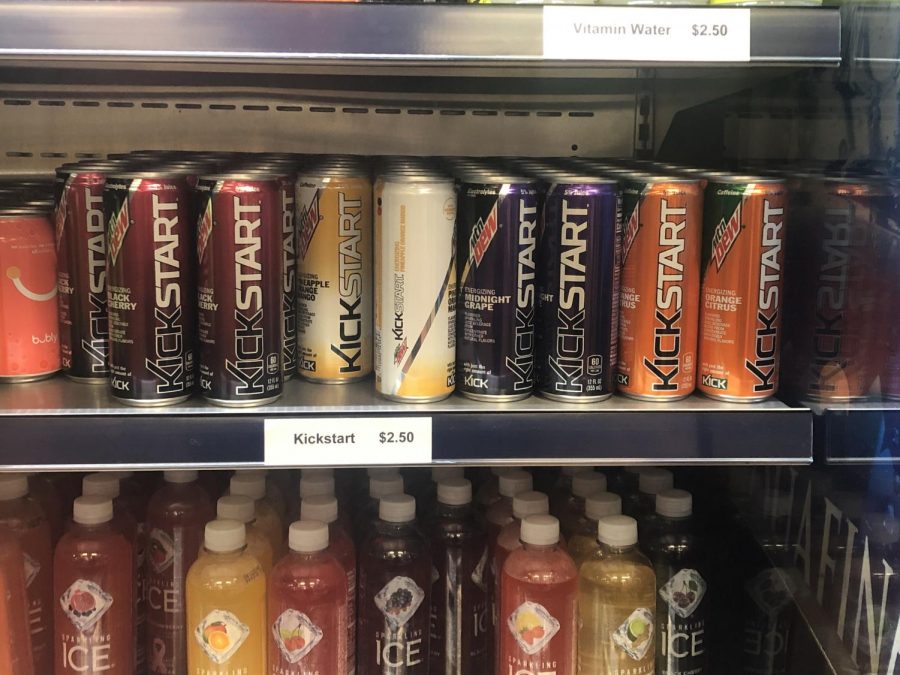Should Energy Drinks Be Allowed?
January 17, 2020
Energy drinks have become a regular drink in lunchrooms and vending machines on campus. High schoolers may be attracted to energy drinks due to the advertising, carbonated flavors, added sugars, and high amount of caffeine that potentially help them get through a long school day. However, are these drinks safe for the human body and for developing high school students?
According to the CDC, in 2011, 1,499 children within the ages of 12 and 17 were sent to the emergency room because of health issues caused due to the consumption of energy drinks. Some examples of these health issues were irregular heart beat and/or heart failure, dehydration, insomnia, and anxiety that caused nervous jittering. The American Academy of Pediatrics have stated that there should be no place for stimulating substances like caffeine in the diet of adolescents and children. But what makes energy drinks such as Mountain Dew Kickstarts allowed in educational institutions around the world?
Staff Member Kathy Gunderson said that energy drinks are allowed in school for a variety of reasons. “The main reason that we have energy drinks at our school is the high demand by customers, meaning students. They aren’t technically ‘healthy’ but they technically meet the nutritional guidelines for high school,” Gunderson said.
Energy drinks have become a staple in the high school community. But due to the recent health risks brought up by the CDC and the AAD, Glacier Peak may look to find healthier alternatives for students in order to keep them hearty and give them benefits in the classroom.


